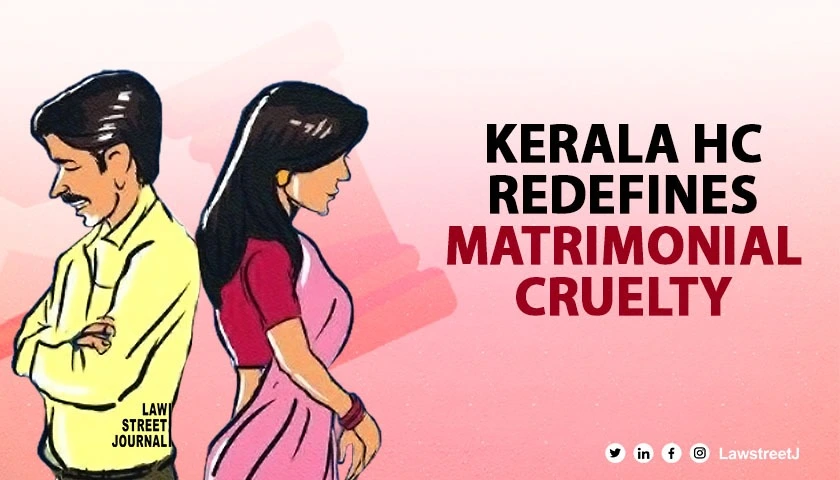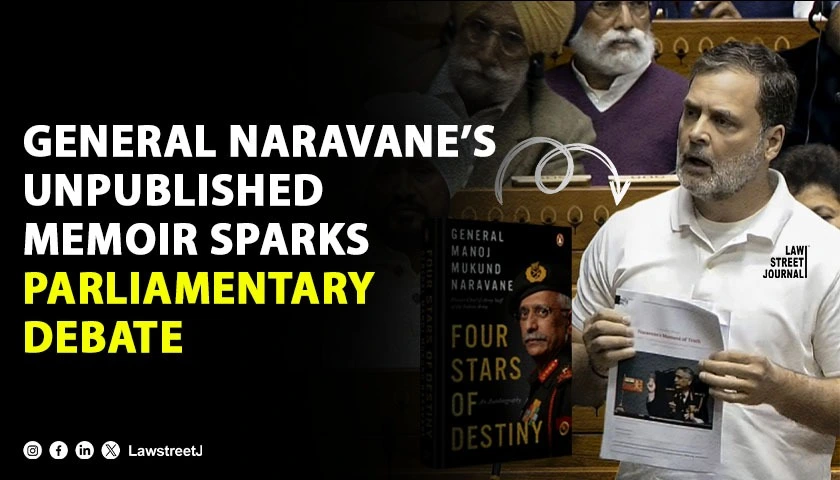Kerala: The Kerala High Court has delivered a significant judgment, granting divorce to a woman who claimed to have been trapped in a loveless marriage for over a decade. The court emphasized the evolving nature of matrimonial cruelty.
A division bench comprising Justice Devan Ramachandran and Justice C. Pratheep Kumar allowed the appeal in MAT.APPEAL NO. 1131 OF 2017, setting aside the judgment of the Family Court, Ernakulam.
The court observed,
"It is impossible to define the concept of 'matrimonial cruelty' with mathematical precision or exactitude. 'Cruelty', most of the time, is a state of mind and depends upon the vicissitudes and permutations of events—it being a personal issue, guided by the impressions in the mind of the person subjected to such."
The case involved a woman who had eloped with a married man at the age of 17 in 2001. She alleged that throughout their marriage, she endured a difficult life due to her husband's alcoholism and infidelity, culminating in a violent incident on May 8, 2010.
Also Read: Prohibition on child marriage applies to all religions: Kerala High Court [Read Order]
The court noted,
"This case presents a situation exacerbated over the years, with the wife feeling trapped in a loveless relationship, reduced to feelings of self-worthlessness and despondency during the entire decade she lived with him."
Importantly, the bench criticized the Family Court's approach, which had dismissed the woman's complaints as part of the "normal wear and tear of family life." The High Court emphasized that such a perspective is incorrect, especially when a woman complains of being in a loveless relationship with a wayward husband.
The judgment also highlighted the evolving nature of what constitutes matrimonial cruelty, citing several Supreme Court decisions. It stressed that cruelty cannot be defined in absolute terms and must be evaluated based on individual circumstances, societal norms, and changing cultural values.
In conclusion, the court stated,
"We are certain that the appellant is entitled to succeed, since she cannot be forced to remain in a marriage against her will and without her volition."




![Kerala HC Quashes 498A Dowry Harassment Case Against Live-In Partner, Citing Lack of Relative Status [Read Order]](/secure/uploads/2023/08/lj_5693_1057c042-1e57-4e27-8c9e-25af0ec38ec4.jpg)
![Watching porn on mobile: Kerala HC highlights importance of mother cooked meals, outdoor sports [Read Order]](/secure/uploads/2023/09/lj_9155_Parental_supervision_of_mobile_phone_usage.jpg)
![Lakshadweep MP Mohammed Faizal Disqualified from Lok Sabha After Conviction Suspension Plea Rejected by Kerala High Court [Read Notice]](/secure/uploads/2023/10/lj_9640_87b5fd97-0e05-4ff8-9a99-3be1e4446192.jpg)






